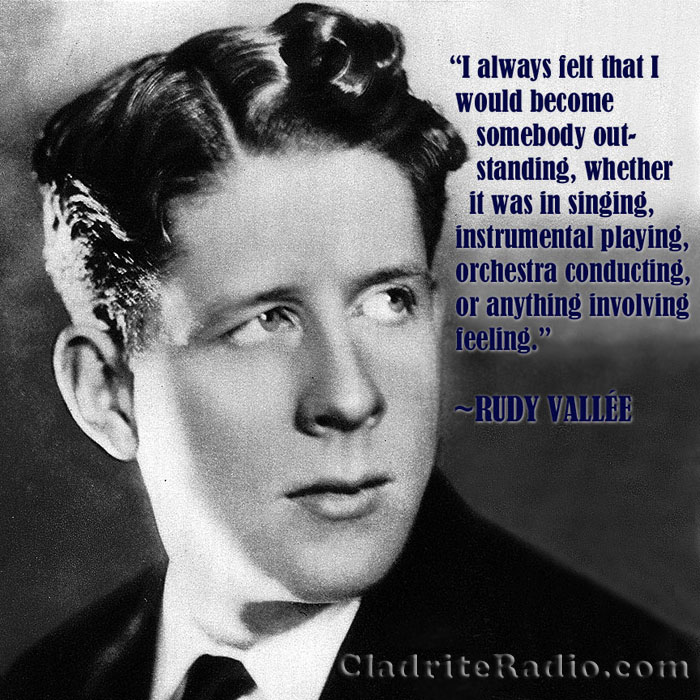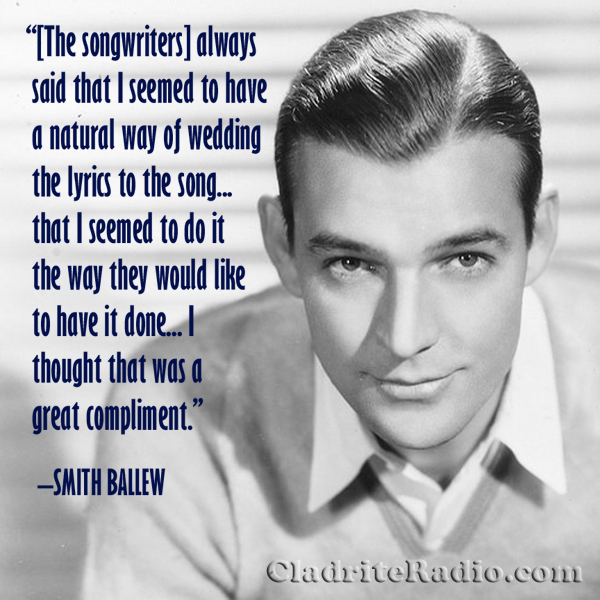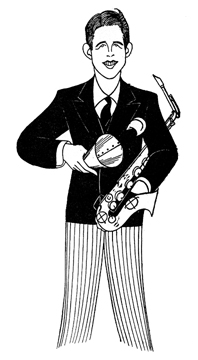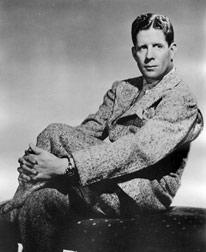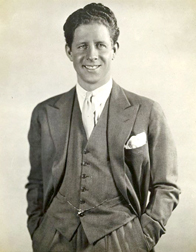Rudy Vallée was born Hubert Prior Vallée 115 years ago today in Island Pond, Vermont. He was a huge star as a young man, a true teen idol singing in a brand new style—the Elvis Presley (or perhaps the Justin Bieber) of his day, if you will. Here are 10 RV Did-You-Knows:
- In addition to his vocal talents, Vallée played drums, clarinet and saxophone.
- Vallée’s popular radio program of the 1920s and early ’30s was sponsored by Fleishmann’s Yeast (funny, but you just don’t see or hear that many yeast advertisements anymore).
- Vallée, for all his popularity with the public, was said to be difficult to work with early in his career. He was short-tempered and ever spoiling for a fight, it is said.
- As an orchestra leader, Vallée gave many popular singers their start, among them Alice Faye and Frances Langford.
- Vallée wrote his first memoir in 1930, when he was all of 29.
- His catch-phrase was, “Heigh-ho, everybody!”
- The crooners of the 1920s and ’30s, of whom Vallée was among the most popular, were singing in a new, more intimate, even sexy style that simply wasn’t possible prior to the rise of the microphone. Rudy’s vocalizing may not strike the average listener today as especially sexy, but at the time, it was. If you don’t believe us, just ask him: He insisted on more than one occasion that “People called me the guy with the cock in his voice.” (No, we don’t really understand that, either.)
- He played the romantic lead in several movies at the height of his popularity, but he later switched to more comedic roles, playing stuffy, pompous and sometimes oddball characters. (He’s very funny in Preston Sturges‘ The Palm Beach Story (1942), for example, but one almost wonders if he’s in on the joke.)
- Vallée had a hit in the 1920s with The Maine Stein Song, the fight song for his alma mater, the University of Maine.
- Vallée died in 1986 while watching the Statue of Liberty Centennial ceremonies on television.
Happy birthday, Rudy Vallée, wherever you may be!
